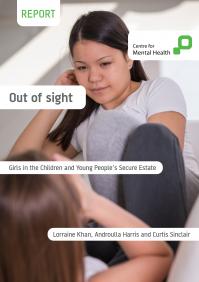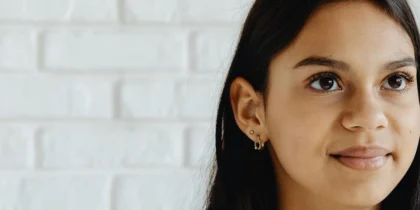Girls in the Children and Young People’s Secure Estate
Lorraine Khan, Androulla Harris and Curtis Sinclair
The Children and Young People Secure Estate (CYPSE) provides placements for children aged between 10 and 17, either for a young person’s welfare or through the youth justice system. Centre for Mental Health was commissioned to review the needs of girls in the CYPSE by NHS England and NHS Improvement in partnership with the Youth Custody Service. The review is informed by interviews with girls who had been in the CYPSE, conducted by Leaders Unlocked.
Out of sight finds that girls entering the CYPSE are a highly vulnerable group, with high levels of trauma and poor mental health. Girls from racialised communities are over-represented in the CYPSE but may be less likely to have their needs recognised and met. Incidents of serious self-harm are more common among girls than boys in the CYPSE, and of particular concern in single gender settings. This is the most common reason for the use of force or restraint with girls, which can be traumatic and erase trust in staff.
Girls experiencing such high levels of adversity and multiple needs require support that is gender-responsive and trauma-informed, and these approaches are being employed in some settings. At the same time, gaps in community support for vulnerable girls increase their risk of being placed in the CYPSE. There is a crucial need for earlier intervention to support girls who are facing trauma and adversity, and for more community-based alternatives to the CYPSE.
This report provides an overview of key concerns and issues for girls in the CYPSE, and makes recommendations of changes needed to better support girls’ needs.
Hear more from Lorraine about this work







